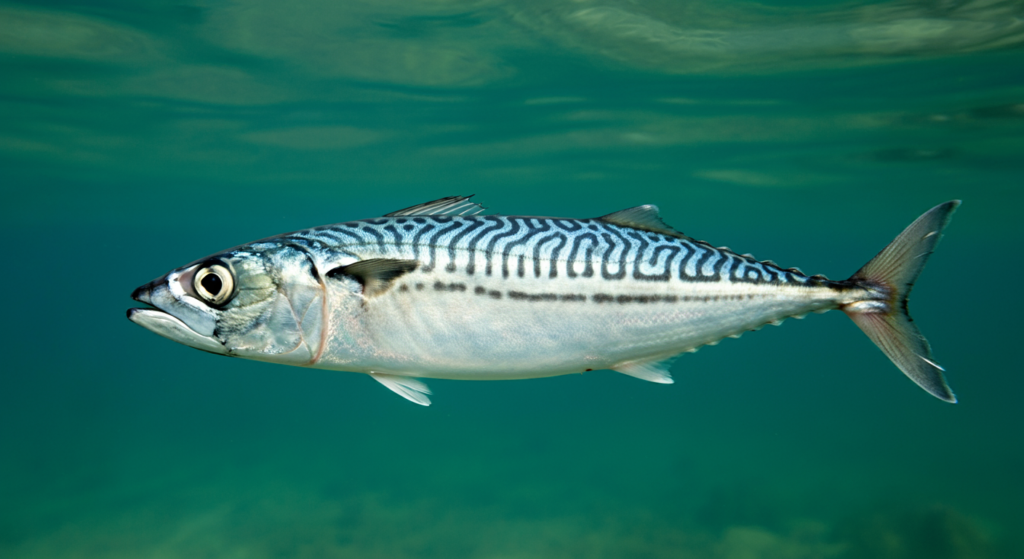Can dogs eat Mackerel?
Mackerel and Paws: Snack Time or Trouble?
As dog owners, we’re always on the lookout for safe and nutritious foods to share with our canine companions. With so many human foods potentially harmful to dogs, it’s only natural to question common dietary staples. Mackerel, a popular fish known for its rich omega-3 content, often raises the question: “Can dogs eat mackerel?” While mackerel is a superfood for humans, is it a safe and beneficial treat for dogs? Let’s explore this topic to help you make informed decisions for your furry friend.
Yes, dogs can eat mackerel, but with some important caveats. When served plain, cooked, and free of harmful additives, mackerel can provide a range of health benefits for dogs. However, improper preparation or overfeeding can lead to risks. Let’s dive deeper into the details to ensure you’re making the best choice for your dog.
Table of Contents

What Is Mackerel?
Mackerel is a small, oily fish commonly found in oceans worldwide. It’s prized for its rich flavour and high nutritional content, particularly omega-3 fatty acids, which are beneficial for both humans and dogs. There are several varieties of mackerel, including Atlantic, King, and Spanish mackerel, each with slightly different characteristics.
In human cuisine, mackerel is often smoked, canned, or grilled. However, the way it is prepared makes a big difference when considering its suitability for dogs. For example, smoked or canned mackerel may contain high levels of sodium or other additives that are harmful to dogs.
Can Dogs Eat Mackerel?
The simple answer is yes, dogs can eat mackerel, but only when prepared correctly. Fresh, cooked, or plain mackerel without any added salt, spices, or oils can be a healthy addition to your dog’s diet. Raw mackerel, while not inherently toxic, carries risks of parasites or harmful bacteria, so it’s best avoided unless frozen and handled properly.
Mackerel is rich in essential nutrients like omega-3 fatty acids, vitamins, and protein, making it a nutritious treat when given in moderation. However, some types of mackerel, such as King mackerel, may contain higher levels of mercury and should be avoided.
What Are the Benefits of Mackerel for Dogs?
When prepared and served correctly, mackerel offers several potential benefits for your dog’s health:
1. Rich in Omega-3 Fatty Acids
Mackerel is an excellent source of omega-3 fatty acids, which are known to:
- Promote a shiny coat and healthy skin.
- Reduce inflammation, helping dogs with arthritis or other inflammatory conditions.
- Support heart health and brain function.
2. High-Quality Protein
Protein is essential for muscle development, repair, and overall vitality. Mackerel provides a high-quality protein source that’s easy to digest.
3. Supports Joint Health
The anti-inflammatory properties of omega-3 fatty acids can help reduce joint pain and stiffness in older dogs or those with arthritis.
4. Rich in Vitamins and Minerals
Mackerel contains a variety of nutrients that support overall health, including:
- Vitamin D: Aids in calcium absorption and bone health.
- B Vitamins: Support energy metabolism and nervous system health.
- Selenium: An antioxidant that helps protect cells from damage.
5. Boosts Immune Function
The combination of omega-3 fatty acids and antioxidants in mackerel can help strengthen your dog’s immune system.

Are There Risks to Feeding Dogs Mackerel?
While mackerel offers many benefits, it’s not without risks. These include:
1. Mercury Content
Some species of mackerel, such as King mackerel, contain high levels of mercury, which can be toxic to dogs over time. Opt for smaller species like Atlantic mackerel, which have lower mercury levels.
2. Parasites and Bacteria
Raw mackerel may harbour parasites or bacteria that can cause illness in dogs. Always cook mackerel thoroughly to eliminate these risks.
3. Bones
Mackerel contains small, brittle bones that can pose a choking hazard or cause internal injury if swallowed. Debone the fish carefully before serving it to your dog.
4. Additives in Processed Mackerel
Canned or smoked mackerel often contains added salt, oils, or seasonings that are harmful to dogs. High sodium levels can lead to dehydration, high blood pressure, or even sodium poisoning in severe cases.
5. Digestive Upset
Feeding too much mackerel can lead to digestive issues such as diarrhoea or vomiting, especially if your dog is not accustomed to fatty foods.
6. Allergic Reactions
Although rare, some dogs may be allergic to fish. Signs of an allergic reaction include itching, swelling, or difficulty breathing. Introduce mackerel slowly and observe your dog for any adverse reactions.
How to Safely Serve Mackerel to Your Dog
To ensure mackerel is a safe and healthy treat for your dog, follow these guidelines:
- Choose the Right Type: Opt for fresh or plain canned mackerel in water (not brine or oil).
- Cook Thoroughly: Steam, bake, or grill mackerel without adding salt, spices, or oils.
- Debone Carefully: Remove all bones to prevent choking or internal injury.
- Limit Portions: Serve mackerel as an occasional treat, not a staple food. A small portion, such as a few bites, is sufficient.
- Monitor for Reactions: Introduce mackerel gradually and watch for signs of digestive upset or allergies.
Fun Facts About Dogs and Mackerel
- Mackerel is a common ingredient in many high-quality dog foods and treats due to its nutritional benefits.
- Some dogs love the taste of fish and may find mackerel particularly appealing as a treat.
- In coastal regions, dogs have historically enjoyed fish as part of their diet, often scavenging scraps from fishermen.
Conclusion
So, can dogs eat mackerel? The answer is yes—with precautions. When served plain, cooked, and free of harmful additives, mackerel can be a nutritious and tasty treat for your dog. Avoid raw, smoked, or canned mackerel with added salt or seasonings, and always check for bones before serving. As with any new food, moderation is key to ensuring your dog’s health and happiness. Have you tried giving your dog mackerel? Share your experience below!

FAQ: Can Dogs Eat Mackerel?
1. Can dogs eat mackerel in sunflower oil?
Mackerel in sunflower oil is safe in small amounts, but the oil adds unnecessary fat to your dog’s diet. Drain the oil before offering it to your dog. Opt for mackerel in spring water when possible.
2. Can dogs eat mackerel skin?
Yes, dogs can eat mackerel skin. It is rich in healthy fats and omega-3 fatty acids, which are beneficial for your dog’s coat and skin. Ensure the skin is cooked and free of harmful additives.
3. Can dogs eat mackerel in brine?
It is not recommended. Mackerel in brine contains high levels of salt, which can be harmful to dogs. Excess salt can lead to dehydration and even sodium poisoning in severe cases.
4. Can dogs eat mackerel in olive oil?
Yes, but only occasionally and in moderation. Olive oil is healthier than other oils, but it still adds fat to your dog’s diet. Always drain the oil before serving.
5. Can dogs eat mackerel in spring water?
Yes, mackerel in spring water is the best option. It is free from added salt, oil, or harmful preservatives, making it the healthiest choice for dogs.
6. Can dogs eat mackerel fillets?
Yes, mackerel fillets are safe for dogs. They provide a great source of protein and omega-3 fatty acids. Ensure the fillets are cooked and boneless to avoid choking hazards.
7. Can dogs eat mackerel in water?
Yes, plain mackerel in water is safe and healthy for dogs. It has no added oils or salts, making it a great option for a treat or as part of their diet.
8. Can dogs eat mackerel bones?
No, mackerel bones can be dangerous for dogs. They are small, brittle, and can splinter, causing choking or internal injuries. Always remove bones before serving.
9. Can dogs eat mackerel in oil?
Mackerel in oil is not ideal due to the added fats. If using, drain the oil thoroughly and offer it sparingly to avoid gastrointestinal issues.
10. Can dogs eat mackerel in tomato sauce?
It depends on the sauce. Plain tomato sauce without garlic, onion, or seasonings is generally safe. However, many canned mackerel products in tomato sauce contain harmful additives, so it’s better to avoid them.
11. Can dogs eat canned mackerel?
Yes, as long as it is in spring water or plain water. Avoid canned mackerel in brine, oil, or sauces with harmful ingredients.
12. Can dogs eat mackerel every day?
While mackerel is healthy, it should not be fed daily due to its mercury content. Offer it occasionally as a treat or supplement to their regular diet. Overfeeding can also disrupt the balance of nutrients in your dog’s diet.
